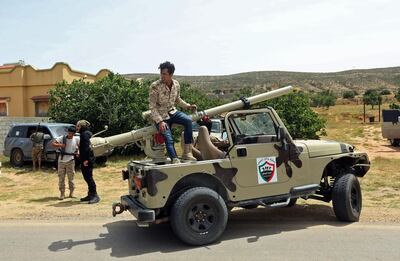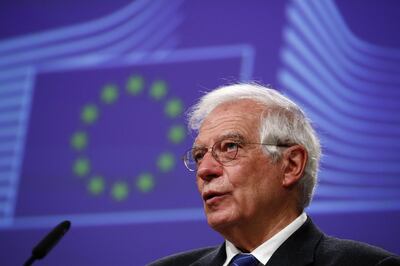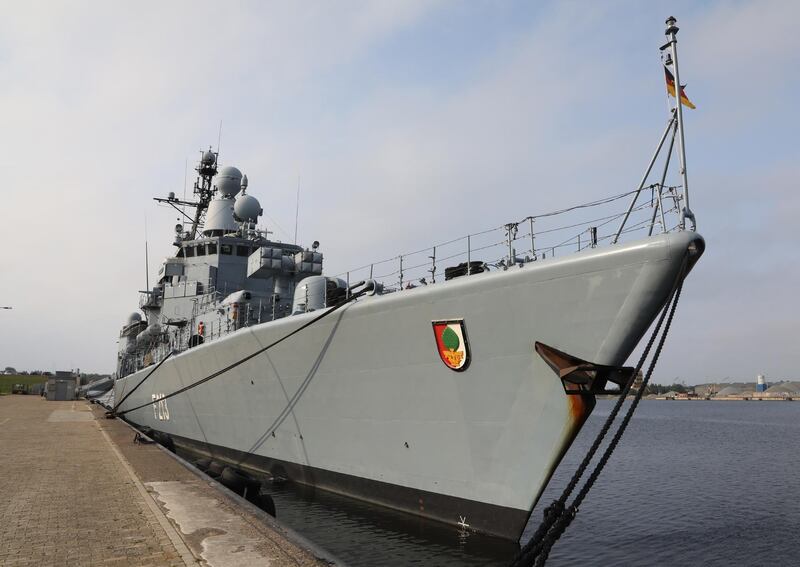The EU’s Mediterranean naval mission to enforce a UN weapons embargo on Libya is to begin amid reports that private intelligence companies are monitoring Turkish ships in the area.
The EU’s Operation Irini became active at the end of March but after negotiations over assets and with European nations distracted by the coronavirus outbreak the first patrols are due to be launched on Wednesday and Thursday.
Reports say the lethargic pace at which the EU has launched Irini has led France to contract private intelligence companies to monitor Turkish shipping taking weapons into Libya.
The conflict in Libya has escalated with forces loyal to the Turkish-backed Government of National Accord in Tripoli making gains against the Libyan National Army led by Field Marshal Khalifa Haftar.
“At this stage there are three naval assets and three planes,” said the EU spokesman for foreign affairs, Peter Stano.
“Three more boats and three more planes [will operate] in supporting roles.”

The bloc’s member states began pledging personnel and craft to the mission last week.
Germany has agreed to contribute 300 troops to the mission and a P-3C Orion reconnaissance aircraft with crew, but no ship.
Germany had contributed a navy frigate to Operation Sophia, a European migrant search and rescue mission in the Mediterranean.
Irini, based in Rome, is led by senior Italian, French and Greek naval officers, Italian press reported.
Those countries have reportedly provided the first three vessels for the mission.
The operation appears to have got off to a faltering start with some of the mission’s ships still not pledged by EU nations.
Mr Stano said new offers for troops and resources could be made next month.
“At this stage, the majority of states made pledges," he said.
"There are not 100 per cent of personnel and assets in place but this will be the subject of the next conference, which starts next month."
The EU agreed on Operation Irini in February to enforce Libya’s much-flouted 2011 weapons embargo, which was a major pledge at January 2020 international conference on Libya in Berlin
Irini will include aerial and satellite surveillance and inspections of vessels suspected of carrying arms.
It will also gather information on illicit oil exports from Libya and the extensive human smuggling networks in the North African nation.
Weapons and troops have continued to arrive in Libya despite the 2011 embargo agreed to by world powers including Turkey, a key player in the country.
Authorities in northern Italy arrested the captain of a Lebanese-flagged cargo ship on suspicion of international arms trafficking to Libya in February.

The Lebanese crew of the cargo ship the Bana, blew the whistle in Italy, saying tanks and other military vehicles were loaded on board at a Turkish port and then taken to Tripoli.
Africa Intelligence reported that Paris has used the French firm CAE Aviation to monitor Turkish vessels suspected of supplying arms to Libya, pre-empting the launch of Irini.
The French Foreign Ministry did not immediately respond for comment.
The head of the GNA in Tripoli, Fayez Al Sarraj, in April rejected Operation Irini saying the EU mission gives an advantage to Field Marshal Haftar’s LNA by blocking supplies of Turkish resources.
Mr Stano said the operation was aimed at creating a lasting ceasefire in Libya.
“This is our contribution to the ceasefire,” he said. “If we manage to undercut the flow of weapons to Libya it might be easier for both parties to realise that if there are not supplies coming in, then it is better to talk and find a political settlement.”
In Europe, diplomatic discussion on the future of Libya has continued.
German Foreign Office minister Niels Annen on Monday held talks with the UK’s Middle East Minister, James Cleverly, on the next steps for the country.
The UK, which has left the EU but played a pivotal role in creating support for the 2011 Nato intervention in Libya, said it was committed to a political solution in the country.







